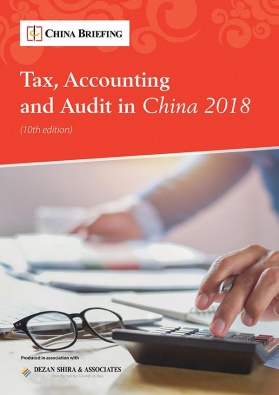China’s Soil Pollution Law Triggers New Compliances for Businesses
China has escalated its fight against pollution, recently passing its first law addressing soil pollution prevention and control.
The Law on the Prevention and Control of Soil Pollution was passed on August 31, 2018 by the Standing Committee of the National People’s Congress (NPC), the country’s highest legislative body. Adopted after its third reading, the law takes effect on January 1, 2019.
The new soil pollution law fills a legal void, creating a comprehensive liability system for preventing and cleaning up soil pollution. We breakdown key aspects of the law in this article.
New nationwide standards for pollution risk control
Through the legislation, the State Council will set the national standards for pollution risk control based on public health risks, soil contamination status, and ecological risks.
Local governments will be allowed to develop their own additional mandatory standards that are stricter than the proposed nationwide ones.
The law focuses particularly on the land used for construction projects and agriculture.
Safeguarding agricultural land is a key concern for the country due to several highly publicized food safety incidents in the recent past.
A survey done in 2013 found that nearly 3.3 million hectares of China’s farmland were already too contaminated to grow crops.
Increased monitoring of soil pollution and polluters
Under China’s new soil pollution control legislation, the Ministry of Environment and Ecology (MEE) will be the primary authority overseeing pollution control and restoration.
The Ministries of Natural Resources, and Agriculture and Rural Affairs will help create a soil monitoring system, establish an environmental information platform, and include soil pollution prevention and control in their development plans.
A nationwide soil condition census will be conducted at least once every 10 years. In addition, the central government is encouraging local governments to establish their own funds dedicated to monitoring and preventing soil pollution.
Stricter compliance standards for businesses
The law proposes a nationwide soil monitoring system consisting of a network of monitoring stations to identify locations with harmful and toxic substances in the soil.
Data and information collected from this network will be shared with authorities in multiple sectors, including the environmental, agricultural, natural resources, housing, water resources, health, and forestry and grassland sectors.
Businesses must do their own monitoring of soil pollution. If a pollution incident occurs, polluters must complete and file a risk assessment report of the incident.
Certified professionals will review the reports and, if needed, add the polluted land to a list of areas subjected to risk management, control, and restoration. Businesses must then develop rehabilitation plans and file them with the local authorities and regulators.
Businesses in certain high polluting industries should expect substantial supervision – authorities will now require them to carry out in-depth investigations of soil pollution when there is a change in or transfer of land use.
Soil pollution data transparency and disclosure
The new law seeks to involve the public in soil pollution management through greater transparency and disclosure of pollution data and incidents.
A list of businesses subject to soil pollution management, control, and restoration will be available to the public and updated regularly.
Reports on soil monitoring data and investigation, risk assessment, and restoration will be uploaded to the national soil environmental information platform as well.
The National Credit Information Sharing Platform and the National Enterprise Credit Information Publicity System will also provide the public with information about known polluters. Authorities will input information regarding soil pollution activities in the polluter’s social credit scores, which can be accessed by the public.
Non-compliance to attract greater penalties, rewards
China’s soil pollution law creates new obligations and liabilities for businesses and land-use rights holders in the country. Previously, soil pollution was only addressed in scattered provisions across different laws, leaving a large legal void and uncertainty for business dealing with soil pollution compliances.
The new law follows the “polluter pays” principle and makes greater use of incentives to reward restitution and penalize polluters.
Land-use rights holders must investigate and assess soil conditions upon the transfer of property or in the incidence of a pollution event. If the investigation reveals pollution levels above set standards, claims against the responsible parties for costs related to investigation and remediation may be pursued.
Fines for polluters have also been significantly increased, with violators facing penalties of up to RMB 2 million (US$288,060). Executives deemed responsible for severe violations can even face administrative detention – arrest and detention without trial.
There is good news, however, for companies “engaged in soil pollution risk management, control, and restoration” – they will benefit from tax cuts.
Thibaut Minot, Assistant Manager on Dezan Shira & Associates’ International Business Advisory team, added that “China has shown a strong commitment to combatting certain ecological issues, provided the environmental policy allows for win-win outcomes. Mitigating the pollution of soils is one such battle that is increasingly supported by governmental bodies, as improving health conditions in China is currently a focus area for policymakers.”
Opportunities and challenges for businesses
Businesses should do an immediate compliance check – anticipating the regulatory changes that will come into effect under China’s soil pollution law next year.
Companies should do their due diligence and review their environmental management practices, with special focus on identifying and addressing contamination.
As businesses adapt their policies to comply with the new legislation and liability scheme, there will also be an increased focus on environmental liabilities in corporate mergers and acquisitions.
With China’s increasing focus on cleaning up its environment, there are plenty of opportunities for foreign businesses in the cleantech and environmental services sectors. Minot noted that “there is tremendous government support for certain initiatives, such as the development of renewable energies or the improvement of the quality of air, water, and soils in urban and agricultural areas. Tremendous opportunities await investors that offer solutions in line with policymakers’ current objectives.”
However, he also cautioned that “foreign investors looking at the Chinese market should expect a highly competitive environment. Chinese firms are now among the world’s leaders in the cleantech industry, such as Bayeco in the sector of air pollution mitigation, NIO in the sector of electronic vehicles, or Scinor in the sector of wastewater treatment.”
“Foreign players will have a harder time gaining market share and accessing government subsidies in the sectors where local firms are already well-established. This reality should be factored into the decision-making of foreign cleantech and environmental services businesses contemplating entry or expansion into China.”
About Us
China Briefing is produced by Dezan Shira & Associates. The firm assists foreign investors throughout Asia and maintains offices in China, Hong Kong, Indonesia, Singapore, Russia, and Vietnam. Please contact info@dezshira.com or visit our website at www.dezshira.com.
- Previous Article China’s Outbound Tourism Market: New Opening Proposed for Foreign Investors
- Next Article How to Get a Shenzhen Hukou










